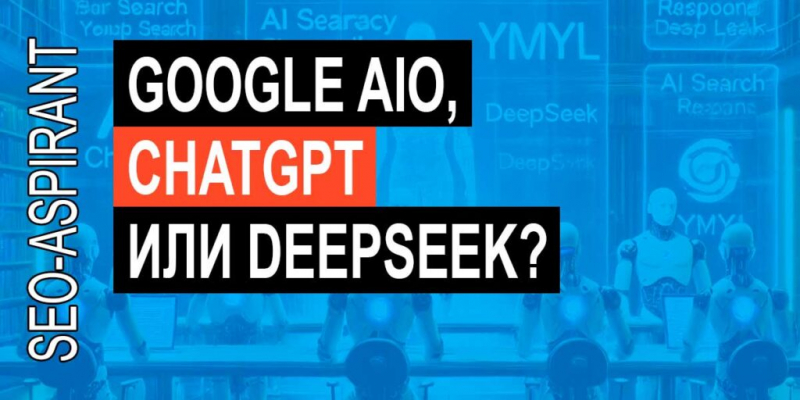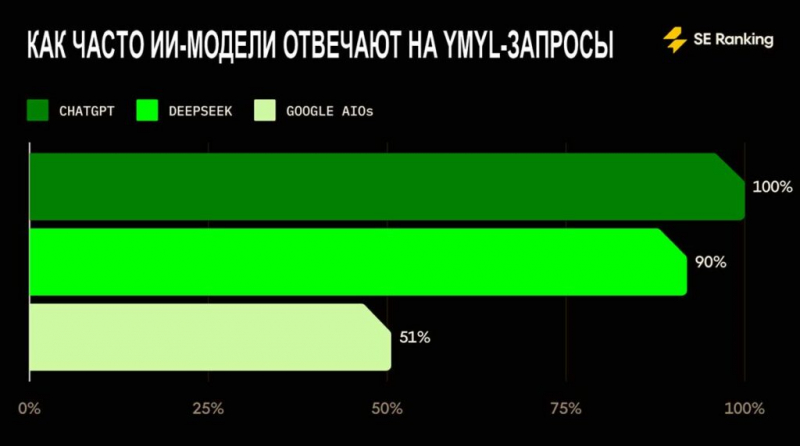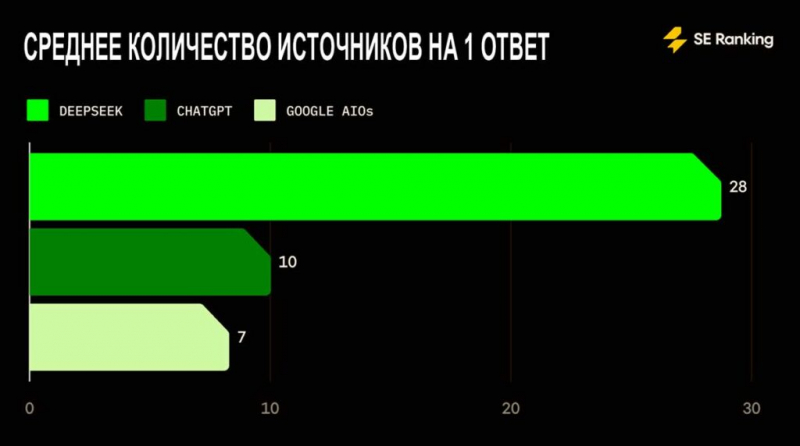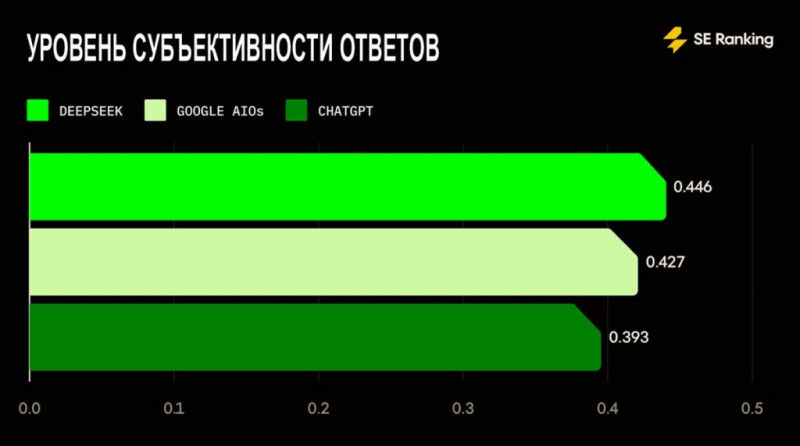In the era of AI search, special attention is being paid to how artificial intelligence handles queries related to finance, health, politics, and law. These queries are classified as “Your Money or Your Life” (YMYL), because errors in responses can affect the health, well-being, or financial condition of users.
A recent SE Ranking study compared three AI tools – Google AI Overviews (AIO), ChatGPT, and DeepSeek, analyzing their behavior when processing YMYL queries. Which models are safer? Which of them is more objective? What opportunities do SEO specialists have? Let’s figure it out.

Recommendation of the month: Telega.in — native integration platform in Telegram channels. Manually verified channels and bots. We help you find your target audience on Telegram and launch effective integrations.
- The main conclusions of the study
- How often do AI respond to YMYL queries
- Response length and sources
- Facts and Opinions
- How does AI search respond to different topics?
- Medical Inquiries
- Legal inquiries
- Financial inquiries
- How does politics affect DeepSeek’s responses?
- What does all this mean for SEO?
- 1. Getting into Google’s AI Overviews is a new ranking factor
- 2. AI search engines like different content formats
- 3. Attention to disclaimer and fact-checking
- 4. Political content is a risk for promotion
- Conclusions
The main conclusions of the study
How often do AI respond to YMYL requests
The researchers studied how actively each system responds to YMYL requests. Google generates AI Overviews only in 51% of cases (compared to 50% in October 2024). ChatGPT responds to 100% of such requests. DeepSeek – in 90% of cases.

Google adheres to a selective approach. This is especially evident in politics – in this category, AI Overviews were shown for only 1 out of 40 queries.
Response length and sources
AI models structure their responses to YMYL queries differently:
- DeepSeek provides the longest answers (an average of 391 words) and uses the largest number of sources (28 per answer).
- ChatGPT offers moderately detailed answers (234 words) with 10 sources.
- Google generates the shortest answers (190 words) and uses 7 sources.

At the same time, Google AI Overviews consist of unique links by 61.9%, which is higher than ChatGPT (40%) and DeepSeek (32.5%). This suggests that Google is more focused on the variety of sources rather than the number of them.
Facts and Opinions
One of the key tasks of AI search is the balance between facts and subjective assessments. The study showed that:
- ChatGPT gives the most objective answers (0.393 points).
- Google AI Overviews is in second place (0.427 points).
- DeepSeek is the most subjective (0.446 points).

The difference is particularly noticeable inin political inquiries:
- Google AI Reviews demonstrates maximum objectivity (0.246).
- DeepSeek, on the contrary, gives the most subjective answers (0.497).
How does AI search respond to different topics?
Different platforms demonstrate different approaches depending on the subject of the YMYL request.
Medical inquiries
- ChatGPT: brief, careful responses with mandatory disclaimer.
- DeepSeek: the most detailed answers, including links to news sources.
- Google: the most careful and concise answers containing warnings.
Top sources of information on medicine:
- webmd.com
- healthline.com
- mayoclinic.org
- wikipedia.org
- goodrx.com
Legal queries
- ChatGPT: structured lists with legal terms.
- DeepSeek: detailed explanations with real-world examples.
- Google: the highest percentage of declaimers (50% of responses are accompanied by warnings).
Top sources of information on jurisprudence:
- wikipedia.org
- forbes.com
- nordvpn.com
- whitecase.com
- avvo.com
Financial inquiries
- ChatGPT: focused on risk warnings, recommends consulting with professionals.
- DeepSeek: provides categorized information, including numerical data.
- Google: in many cases avoids answering questions about investments or financial decisions.
Top sources of financial information:
- nerdwallet.com
- youtube.com
- forbes.com
- reddit.com
- cnbc.com
How does politics affect DeepSeek’s responses?
DeepSeek is a Chinese AI model, and research has revealed limitations in answering political questions. He refuses to respond to the topics of Taiwan, Tiananmen Square, and human rights in China. In some cases, DeepSeek provides answers that match the official position of the Chinese government.
This is important to consider when analyzing data and using it in SEO.

What does all this mean for SEO?
The study shows that AI search continues to evolve and influence search results. For SEO specialists, this means the following:
1. Getting into Google’s AI Overviews is a new ranking factor
Google doesn’t always show AI Overviews, but if your site gets into them, it can generate additional traffic. At the same time, the content must be of high quality. It is important to provide accurate facts and links to reputable sources. Objectivity is an important factor, especially in YMYL topics.
2. AI search engines like different content formats
Google prefers unique sources. DeepSeek works better with deep, detailed articles. ChatGPT takes structured materials well.
Optimizing for different platforms can help you gain more visibility in AI search.
3. Attention to disclaimer and fact-checking
Medical, legal, and financial topics require caution. The presence of disclaimers in the text may increase the chances of getting into an AI search.
4. Political content is a risk for promotion
If your site publishes materials on political topics, it is worth considering that AI can filter such content if it seems too subjective. Google has limited responses to such requests. DeepSeek may avoid certain topics.
Conclusions
AI search is evolving, and each platform offers its own approach to processing YMYL queries. Google focuses on selectivity, ChatGPT focuses on universality, DeepSeek focuses on the depth of response (but with political limitations).

For SEO, this means that optimizing content for AI search is becoming a new challenge. You need to consider the specifics of different platforms, content formats, data sources, and the balance between factual accuracy and audience engagement.
Source of information: seranking.com .
